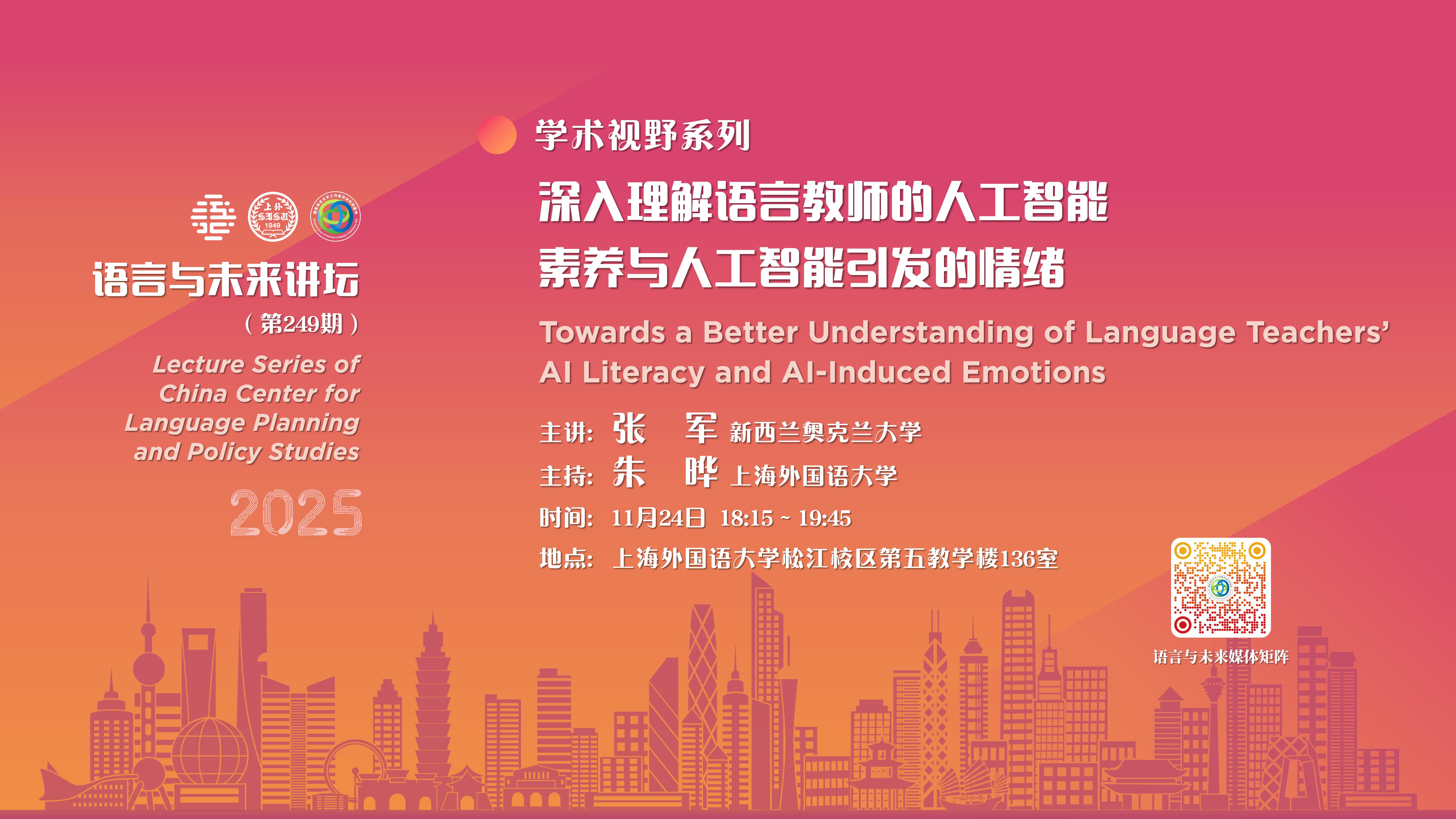
Artificial intelligence (AI) has emerged as a pivotal force driving innovation and transformation in language education. However, the dual challenge of enhancing teachers’ AI literacy and understanding their emotional experiences in AI-mediated teaching remains largely unexamined. AI literacy among teachers encompasses not only technical knowledge of AI applications but also an understanding of their pedagogical implications, ethical considerations, and the ability to critically evaluate and implement these technologies effectively in the classroom. Without sufficient AI literacy, educators may struggle to maximise the benefits of AI tools, potentially leading to ineffective implementation or resistance to technological integration. Equally crucial is an examination of language teachers’ emotional responses to AI-driven teaching environments. The introduction of AI can evoke a range of emotions, from enthusiasm and curiosity to anxiety and apprehension. Understanding these emotional experiences is vital in developing strategies to support teachers in navigating AI-mediated instruction, ensuring that they feel empowered rather than overwhelmed by these technological advancements. As AI continues to reshape pedagogical practices, it is essential to explore how language educators navigate its integration, both in terms of cognitive adaptation and affective responses.
To fill the research gap, we conducted a systematic review to identify relevant studies published in SSCI-indexed journals within the Web of Science Core Collection (WOSCC) to show the research trend. The review uncovered existing research on AI literacy among language teachers and their emotional responses to AI-driven teaching and learning processes. Building upon appraisal theory, we further propose a novel framework that elucidates the intricate interplay between AI literacy and AI-induced emotions within the context of applied linguistics and/or language education. This framework serves as a foundational step towards developing strategic interventions and professional development programmes that support language teachers in adapting to the ever-evolving AI-mediated pedagogical landscapes. Ultimately, bridging AI literacy with an awareness of emotional responses will enable educators to harness AI’s potential while mitigating its challenges, ensuring a balanced and sustainable integration into applied linguistics and/or language education practices.
获取更多与本讲座相关的详细信息,敬请关注中国外语战略研究中心公众号“语言与未来”(ID: SISU_CCLPPS)的微信推送。
Lawrence Jun Zhang(新西兰奥克兰大学)
张军 (ZHANG Jun Lawrence),新西兰奥克兰大学人文艺术及教育学部副部长、应用语言学教授、博士生导师。2014年获颁奥克兰大学优秀博士生导师奖,2016年当选世界英语教师协会(TESOL)全球领军学者之一,现任中国英语写作教学与研究专业委员会副会长、中国学术英语教学研究会常务理事,兼任 “山西百人”专家,曾任吉林省“长白山学者”讲座教授(吉林大学)、湖北省“楚天学者”讲座教授(华中科技大学)、Elsevier出版社SSCI一区语言学类国际期刊System的联合主编(2016-2024)。近几年连续入选斯坦福大学全球学术影响力前2%语言学/语言教育类研究学者名录,另担任多家顶级学术期刊编委及论文评阅人,以及多家国际知名出版社书稿审阅人。发表论文、书评、章节近200篇,其中在SSCI期刊论文190余篇,荣获美国TESOL国际学会2011年度“最佳科研论文奖”(唯一获奖者),主持两项重大科研项目,并担任加拿大、荷兰、新加坡及香港等地的多项国家级研究基金特邀评审。
新闻报道

